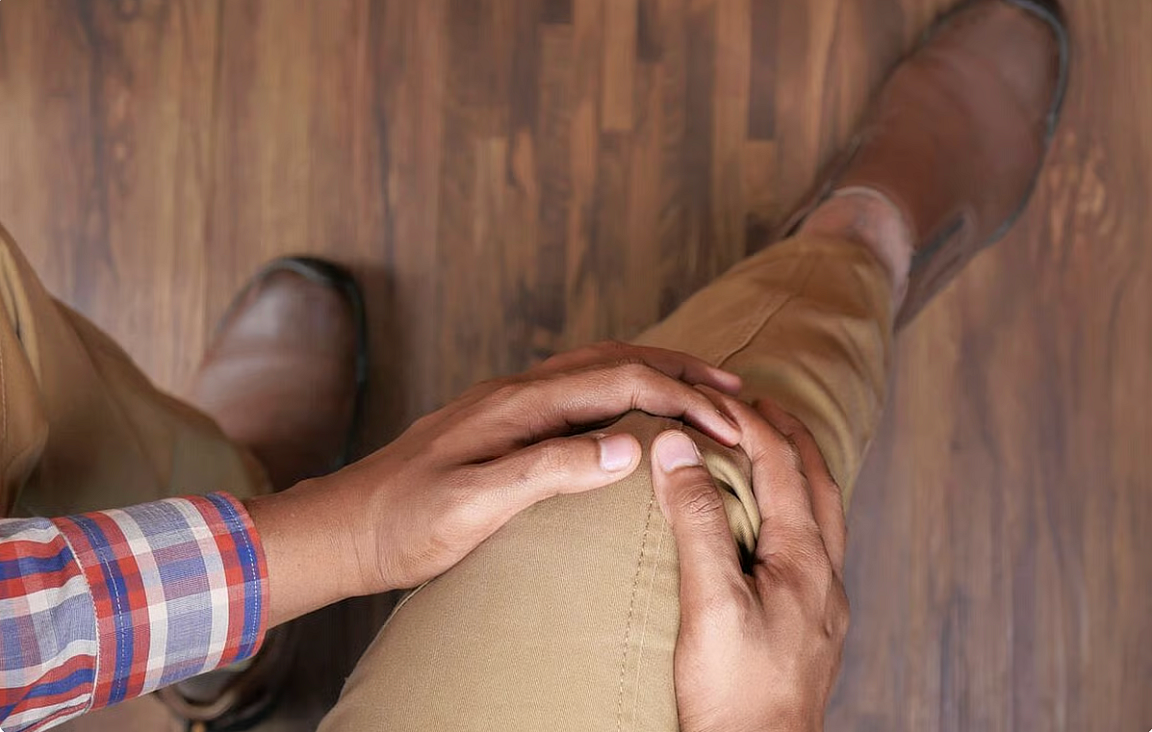
'It Is A Warning Sign': UAE Doctors Urge Residents Not To Ignore Persistent Knee Pain
Doctors in the UAE are warning residents not to dismiss persistent knee or joint pain, saying that while it's often caused by common issues such as strain, arthritis, or minor injury, in some cases it could signal something far more serious - including cancer that has spread to the bones.
They cautioned that pain which lasts for more than a few weeks, worsens over time, or does not respond to over-the-counter medication should be medically evaluated instead of being ignored or self-treated.
Recommended For You Kaplan MENA hosts landmark Sustainability and ESG Forums in Riyadh and Dubai UAE weather tomorrow: Rains expected in some areas; temperatures to riseFor Moza Alshehi, a mother of six, knee pain turned out to be an unexpected sign of something life-threatening. What began as what she thought was a simple muscle strain gradually intensified until walking became difficult.
Stay up to date with the latest news. Follow KT on WhatsApp Channels.
After undergoing tests, Moza learned she had breast cancer that had spread to her bones - a rare but serious condition known as bone metastasis. With timely treatment combining chemotherapy and targeted drugs, she made a full recovery.
According to Dr Moustafa Aldaly, a consultant in medical oncology at International Modern Hospital in Dubai, persistent or unexplained knee or joint pain may occasionally signal a more serious underlying disease.“In rare cases, pain can be due to bone metastasis, a condition where cancer cells from the breast, prostate, or lung spread to bone tissue,” he said.“These malignant cells disrupt normal bone structure, causing inflammation, damage, and pain.”
He added that patients should seek medical evaluation if the pain lasts beyond two to three weeks, gets worse over time, or appears without any injury.“Warning signs include swelling, tenderness, unexplained weight loss, fatigue, or night sweats,” said Dr Aldaly.“These features are not typical for simple musculoskeletal injuries and should prompt a clinical assessment.”
Early intervention is key
Dr Aldaly mentioned that pain caused by bone metastasis feels different from ordinary joint pain.“It's often deep, constant, and progressive. It may worsen at night or during rest and can cause limited movement,” he said.“In advanced cases, patients may even sustain fractures with minimal trauma.”
According to doctors the cancers most likely to spread to bone are breast, prostate, lung, kidney, and thyroid.“Early screening remains the most effective way to prevent such advanced disease. Detecting cancer before it spreads improves survival and significantly reduces the risk of skeletal involvement,” said Dr Aldaly.
In the UAE, breast cancer continues to be the most commonly diagnosed cancer among women, making up around 21 per cent of all new cases.“Although progress has been made in early detection, around 20 per cent of Emirati women still present with stage IV disease at diagnosis,” said Dr Mahmoud Medhat, a specialist in critical care medicine.“This shows that there's still a strong need for more awareness, timely screening, and early referral.”
Dr Medhat highlighted that patient management begins at diagnosis and continues throughout treatment.“A multidisciplinary tumour board, which includes oncology, radiology, orthopaedics, and palliative care, develops a personalised plan to manage the disease. For patients presenting with bone or joint pain, collaboration between these specialties ensures comprehensive care,” he said.
He added that 34 per cent of women over 40 in the UAE have never undergone a mammogram, despite survival rates exceeding 85–90 per cent when breast cancer is detected early.“Public awareness campaigns, routine screening, and counselling are essential to reduce late-stage presentations,” he said.
Doctors stressed that pain should never be ignored.“Pain is a warning sign,” said Dr Aldaly.“Masking it with medication may delay diagnosis. People who experience pain that is persistent, unexplained, or worsening should seek prompt medical help.”

Legal Disclaimer:
MENAFN provides the
information “as is” without warranty of any kind. We do not accept
any responsibility or liability for the accuracy, content, images,
videos, licenses, completeness, legality, or reliability of the information
contained in this article. If you have any complaints or copyright
issues related to this article, kindly contact the provider above.


















Comments
No comment